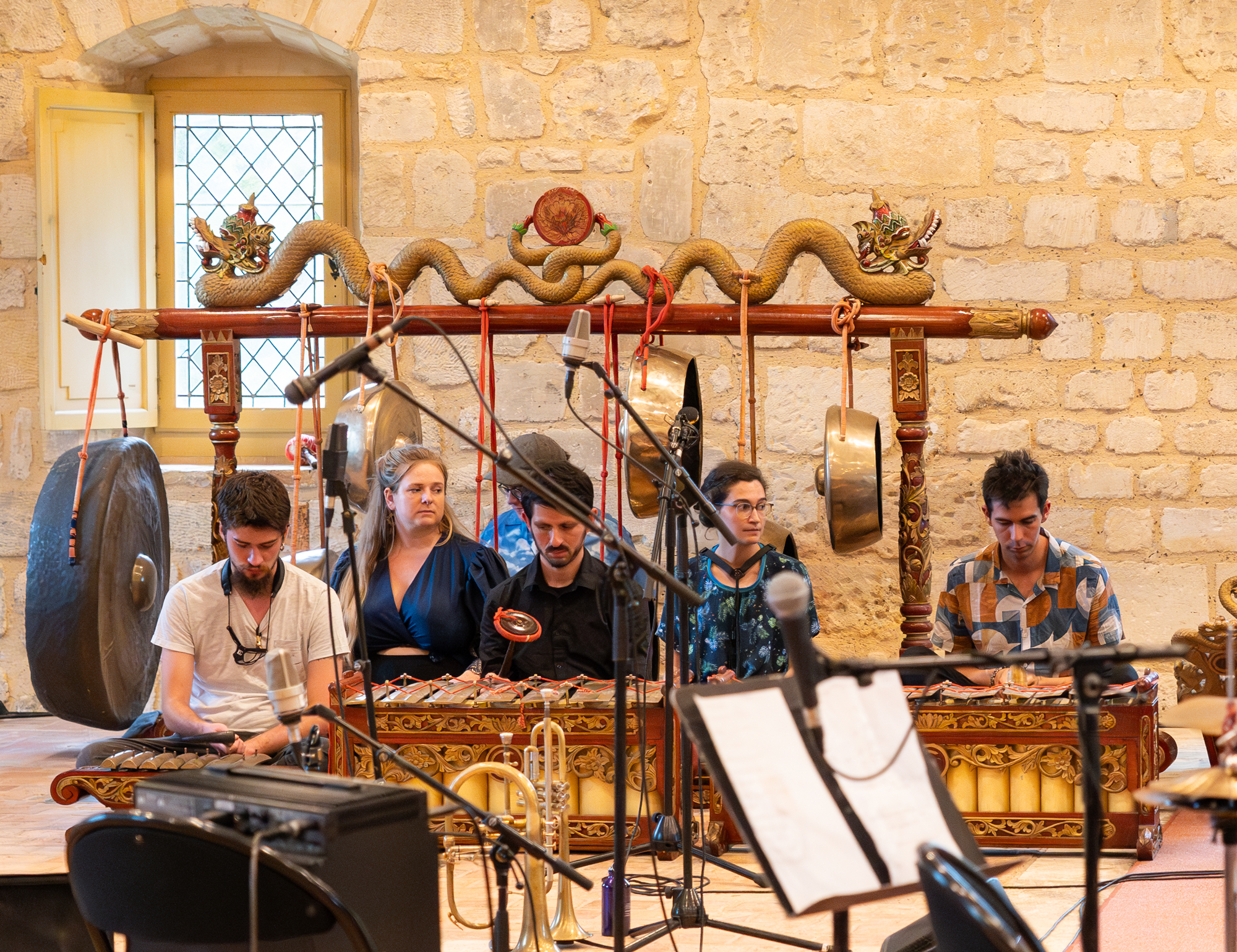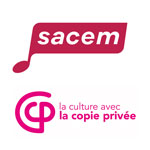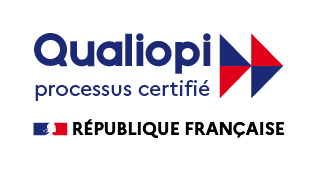The source of raï, popular song from Algeria
in partnership with the musée du quai Branly-Jacques Chirac
Period
August 11 to 23, 2025
Presentation
Since 2021, the Royaumont Foundation has joined forces with the musée du quai Branly – Jacques Chirac to develop an academy dedicated to transcultural music.
Each year, the Académie invites a master from a traditional culture and a “passer” who is an expert in the dialogue between tradition and creation. These two artists pass on their knowledge and experience to ten musicians, and/or improvisers, and/or singers, and/or composers, from all horizons, and invite them toexperiment with the process of collective transcultural creation.
The Académie is an invitation to work on improvisation and collective musical composition, based on orality and inspired by everyone’s contribution, whatever their instrumental or vocal practice.
It calls on musicians and singers with non-Western and Western knowledge in all its multiplicity, and on those who wish to explore musical languages far removed from their usual practice, to imagine and create new forms of expression together.
For this fourth edition, the Académie will be led by composer and violinist Théo Ceccaldi, one of the most singular voices on the European jazz scene, voted “French Musician of the Year” by Jazz Magazine in 2023 and “Revelation of the Year” at the Victoires du Jazz awards. He will be joined by songwriter and singer Sofiane Saïdi, from Sidi Bel Abbès, the cradle of Algerian raï.
Théo Ceccaldi met Sofiane Saïdi during his project Constantinea collective tribute to their Algerian roots and their father’s music, developed with his brother Valentin Ceccaldi. Subsequently, Théo Ceccaldi and Sofiane Saïdi played together and rearranged his compositions for the project NoBorders. They then took part in the creation of Raï 2.0 for the Fondation Cartier in 2023.
“I was immediately very moved by the depth and breadth of Sofiane’s expressiveness, which carries us away into a rich musical story, via intense performances from start to finish, both technically and in terms of the emotion and energy they exude.” – Théo Ceccaldi
The two artists have chosen the theme of Raï, its roots and its evolution over the past 60 years, an artistic field in which Sofiane Saïdi excels.
Together, Théo Ceccaldi and Sofiane Saïdi have identified a number of areas of interest, based on its history, the messages it has conveyed, its aesthetic cross-fertilization over the years, and its unifying impact on an entire people, which was the first Arab musical movement to cross international borders.
Raï comes from Sofiane Saïdi’s home region of Oran, western Algeria, and has its roots in rural Bedouin music (reed flutes / percussion / vocals), West African Gnawa slave music, Egyptian musicals and Moroccan Chaabi. The rural exodus brought this music to the cities, where it blended with rock through wedding bands. Subsequently, it underwent many changes, with the influence of pop songs, reggae and, later still, drum machines and electronic music.
The Academy will cover the following topics:
- Raï as a pretext for hybridization: instrumentarium of Raï through the ages. How can we reinvent it today?
- Discovering and improvising the main modes and scales of Raï ;
- Bedouin poetry and Raï themes;
- Learning / integrating / reinterpreting the traditional Bedouin melodies that formed the basis of Raï;
- Discover and improvise with voice and instrument on the various binary and ternary rhythms that form the basis of Raï (Moroccan Chaabi / Gnawa…);
- Raï and electronic machines ;
- Creation of our own repertoire between compositions and reinterpretations of the traditional repertoire, and expansion to more improvised and contemporary forms and structures, to create the Raï interpretation of the Academy of Transcultural Music 2025 ;
- Through the playful modes and tools of Raï, development of a method of improvisation that is constantly in motion and in search;
- Development, adaptation and cross-fertilization of traditional and contemporary modes of improvisation;
- Expanding on the themes of philosophy in the oral tradition, the relationship to improvisation, the relationship of the musician’s work to the body in personal work.
During the Academy, participants will spend a day at the musée du quai Branly – Jacques Chirac :
- To discover a selection of his collection of instruments, linked to the Academy’s theme;
- For a guided tour of the museum’s collections (North Africa and Middle East zone);
- (to be confirmed) for a meeting with a researcher associated with the museum, to provide theoretical insights and lead a debate on a subject related to the Academy.
During the Academy, a researcher from the University of Paris Nanterre will provide theoretical insights and lead a debate on the challenges of transcultural creation.
In addition to group and individual sessions organized as part of the “Académie de musiques transculturelles”, academicians will be invited to take part in joint sessions with artists from the ” Académie Voix Nouvelles – Polyphonie, composition, poésie “, during physical preparation workshops, collective improvisation sessions and guided listening sessions.
At the end of the Academy, two public performances will be given, whose content and presentation will be conceived, composed, created and invented by Academy participants:
- One at Royaumont Abbey during a Fenêtre sur cour[s] on August 23, 2025,
- The second in the Théâtre de verdure of the Musée du quai Branly – Jacques Chirac for a post-training concert on August 24, 2024.
Teachers
Successively voted French Musician of the Year by Jazz Magazine, then Revelation of the Year at the Victoires du Jazz awards, Théo Ceccaldi has established himself as one of the most singular voices on the new European jazz scene.
He co-founded the lively Tricollectif collective in Orléans, and plays an active role in a series of groups including Loving Suite pour Birdy So with Elise Caron, Tribute to Lucienne Boyer with the Grand Orchestre du Tricot, and drummer Sylvain Darrifourcq’s trio In Love With. In 2014, Théo Ceccaldi joined Olivier Benoit’s ONJ, the iXi string quartet, Daniel Erdmann’s European trio Velvet Revolution, and Joëlle Léandre’s tentet.
An eagerness to meet new people has led him to perform in a wide variety of bands, alongside Louis Sclavis, Fred Pallem, Michel Portal, Leïla Martial, Thomas de Pourquery, Vincent Courtois, Daniel Humair, Bruno Chevillon, Yom, Paolo Fresu, Eve Risser, Christian Lillinger, Emile Parisien and Mulatu Astatké.
After creating the operetta Peplum with punk poet Fantazio, he turned his attention to the explosive psychedelic jazzpunk FREAKS, the electro-chamber duo MONTEVAGO, with Roberto Negro, and the Théo Ceccaldi Trio’s new creation, DJANGO.
In 2020, he and his brother Valentin pay tribute to their father, Serge, and create the album and show Constantine, with the Tricot’s grand orchestra and numerous guests.
In 2021, he explores his relationship with voices and world music with his new creation KUTU, inviting two Ethiopian singers, and digs the furrow of handmade electro music with a new project, KIMKIMKIM. That same year, he becomes an associate artist of the Jazz sous les pommiers festival.
In 2023, Théo launches a series of “laboratory residencies” around world voices and personalities he’s met on the road in recent years. The resulting projects are:
No Borders 1: with Sofiane Saïdi, La Chica, Anna Majidson, Emma Lamadji Twende Pamoja: with Faizal Mostrixx, MC Kadylida, Aunty Rayzor.
In 2024, Théo works on Kutu’s new album, “Marda”, produced by Lazyflow and to be released by Naive in February 2025. After a1st at the Transmusicales de Rennes, the Twende Pamoja project is back on the festival circuit (Paleo, Suds à Arles, Ouest Park fest. among others).
“Théo Ceccaldi plays the violin with a mastery that renews what we thought the instrument was capable of.” Michel Contat, Télérama
“Théo and Valentin Ceccaldi, both in their thirties, have the art of taking the limelight in their quest for pure music. So likeable, so real. They are said to be gifted, hyperactive and overactive. Hailing from Orléans, the Ceccaldi brothers have just spawned a galaxy, or something like it, that is disrupting the cosmos. – Francis Marmande, Le Monde
Follow Théo Ceccaldi on the networks :
Originally from Sidi Bel Abbès, the cradle of Algerian raï, and a long-time Parisian resident, Sofiane Saïdi has traveled extensively in recent years. Following the success of his album El Ndjoum, the man whom Radio Nova dubbed the “prince of raï 2.0” has toured the world, alongside the talented Lyon-based gang of sound traffickers Mazalda or as a guest on numerous projects, restoring to its former glory a music thought to have returned to its community origins and forgotten by the public and the adventurers of musical creation. An heir to raï, with the warmth of his husky, soulful voice and the energy of his crazy swing, Sofiane Saïdi has also asserted the singularity of his style, with a pronounced taste for encounters and sound explorations beyond stylistic boundaries.
Follow Sofiane Saïdi on the networks :
Previous editions of the Academy of Transcultural Music



Winners speak out

“It was a great course organized by and taught by amazing people. A warm atmosphere that made it possible to concentrate on the procedure with a lot of enthusiasm. It was full of highlights, the biggest one was the concert at the Museum, where we had the chance of sharing our compositions with the public.”
“I was immersed in the rhythms and melody of Indian and Turkish music every day for a week, and this has become my nourishment, which will have a certain influence on my future improvisation and composition, and this is a kind of cultural exchange and learning, which is very interesting.”
“The Academy offered a total immersion in the worlds brought to life by each of the speakers, surrounded by trainees of an excellent level and with a wealth of artistic ideas.”
Composition path modalities
August 11 to 23, 2025
Target audience
2 singers, 7 instrumentalists and/or composers
Prerequisites and conditions of access to training
Singers and musicians with professional or pre-professional experience.
Participants demonstrate stylistic openness and a taste for musical research and creation, in all its forms, and have a regular musical practice, particularly in collective forms.
The training program welcomes singers and musicians already experienced in the field of improvisation, as well as singers and musicians with a written background who wish to be guided in their first approach to improvisation.
Have a good level of spoken English.
Participants formally undertake to complete the entire training program, i.e. 11 days of training and 1 day of post-training concert.
Access conditions will be communicated during training.
Fenêtres sur cour[s] public presentations
Fenêtre sur cour(s) on Saturday, August 23, 2025, at Royaumont Abbey, without remuneration.
Post-training concert on Sunday August 24, 2025, at the musée du quai Branly – Jacques Chirac (Paris), with remuneration.
Closing date for applications :
January 12, 2025 midnight
Duration
August 11 to 23, 2025
[arrivée le 10 août en fin de journée et départ après le concert post-formation du 24 aout au musée du quai Branly – Jacques Chirac]
12 training days (+ 1 rest day)
84 hours
Rates
See price conditions page
Application
Stage 1: pre-selection based on application
Response: from January 20, 2024
Stage 2: shortlisted candidates will be invited to a videoconference interview between January 27 and 31, 2025
Final response: from February 3, 2025
For your application and pre-selection, you will need to provide the following information:
- Biography, 600 characters including spaces imperatively
- CV
- Motivation letter: highlighting skills and qualities, reasons for wishing to take part in the Academy. If you play several instruments, please indicate which instruments you would like to play during the Academy.
- Photo
- Several video links with musical extracts. Good sound quality is essential.
Closing date for applications: midnight January 12, 2025
All Royaumont Foundation training programs have a minimum lead time of 11 working days.
Example: if the Royaumont Foundation validates the registration request on June 14, it can offer the beneficiary a course starting on June 29.
Fiche programme
version n°1 dated 12/11/2024
Validity of version n°1: 1 year renewable
Course description/content of the training
| Prior to training | February 2025, by videoconference: Meeting between training participants, beneficiaries and supervisors, training manager and administrative manager. |
| Week 1 | August 11, 2025 Welcome of training participants: – presentation of beneficiaries, supervisors, referents (pedagogical, administrative, logistical); – presentation of premises; – presentation of training program; – reminder of target skills/operational objectives. August 11 to 16 , 2025 Each beneficiary introduces himself or herself to the other Academy participants: background, approach, projects. – One-hour group physical preparation sessions every morning (except August 11). – Group practice sessions. – Individual practice sessions. – A researcher from the University of Paris Nanterre will provide theoretical insights and lead a debate on the challenges of transcultural creation. August 17, 2025 Day of rest |
| Week 2 | August 18 to 23, 2025 One-hour group physical preparation session every morning. Group practice sessions. August 20, 2025 A day at the musée du quai Branly – Jacques Chirac : > to discover a selection from its collection of instruments, linked to the Academy’s theme. > for a guided tour of the museum’s collections. > for a meeting with a researcher associated with the museum, to provide theoretical insights and lead a debate on a subject related to the Academy. Individual interview with the training manager to discuss the beneficiary’s professional project. Collective improvisation and guided listening sessions with Académie Voix Nouvelles participants. Collective assessment of training. Fenêtres sur cour[s] on August 23, 2024. |
Number of traines minimum / maximum
Floor staff: 1 singer, 6 instrumentalists and/or composers
Ceiling staff: 2 singers, 7 instrumentalists and/or composers
Educational objectives
Knowledge
- Develop or deepen theoretical knowledge of a specific repertoire, Algerian raï.
Expertise
- Develop your technical skills on your voice or instrument.
- Develop your improvisation skills.
- Use vocal and/or instrumental technical and creative skills to create a collective musical form inspired by the repertoire covered, and present the fruit of this work in public at a final performance.
- Present your artistic identity to your peers in an oral presentation.
soft skills
- Identify all the people present during the training session and their roles: other training participants, supervisors, training coordinator, administrative coordinator, logistics coordinator.
- Hear and understand the demands of supervisors.
- Clearly express musical intentions and justify them.
- Be part of a collective and participate actively and positively in the creation of a collective musical form.
- Benefit from what other training participants have learned.
- Communicate with kindness, to the artists with whom you play, the relational difficulties you may encounter.
Target skills
At the end of the training the beneficiary will be able to :
- The ability to be part of a collective musical research project, while nourishing it with new proposals.
- An ability to participate in a collective musical work by mobilizing technical skills.
- Knowledge of the history of Algerian raï.
- In-depth instrumental and/or vocal training.
- Enhanced improvisation practice.
- An ability to listen, learn and open up to practices and music far removed from one’s main practice and/or that which has been the subject of one’s main education.
- The ability to communicate your artistic identity.
Methods used
Teaching aids :
- Individual instrumental and/or vocal practice session with each supervisor (minimum 1 one-hour session with each supervisor).
- Public performance of the collective musical work.
- Group instrumental and/or vocal practice sessions.
- Presentation sessions: each musician or singer presents his or her background, approach and projects to the other Academy participants.
- Daily one-hour group physical preparation sessions.
- Individual interview with the training manager to discuss each participant’s career plan.
- Interventions by researchers for theoretical sessions and debates on training-related issues.
Technical resources available :
Workrooms equipped with desks and chairs.
Outside group work sessions, during the training period, workspaces can be made available free of charge, on request and subject to availability.
Documentation via a private google drive.
Access to a photocopier for printing work documents (scores, etc.).
Monitoring and evaluation methods
During the course, face-to-face
- Assessment, through practical work, of the beneficiary’s responsiveness and ability to quickly integrate the proposals made by the supervisors, as well as his/her ability to integrate into the group.
- The one-on-one interview between the beneficiary and the training manager enables assessment and career guidance.
The beneficiaries sign a sign-in sheet for each half-day.
At the end of training
A certificate stating the objectives, nature and duration of the course, and the results of the training assessment, is given to the beneficiary, along with the certificate where applicable.
Qualitative assessment methods
The beneficiary fills in a qualitative evaluation form to assess the artistic, pedagogical, human and material aspects of the training.
A post-training follow-up is established, for which beneficiaries are asked to inform us within six months of the end of the training of any contracts they have obtained.
Accessibility and consideration of disability situations
The Royaumont Foundation has made the acceptance and participation of people with disabilities a strong commitment to its project. Our training courses are open to people with disabilities and different arrangements can be made according to the specificities of each course. To discuss your needs, please contact us when you register, or get in touch with our disability advisors.
Contact
Pedagogical manager
Jean-Philippe Wurtz artistic director, PôleCréation musicale
jp.wurtz@royaumont.com
Administrative manager
Samuel Agard PôleCréation musicale administrator , Artistic advisor for transcultural music
s.agard@royaumont.com
Disability referents
Samuel Agard and Doriane Trouboul
referenthandicap@royaumont.com
VHSS referent
vhss@royaumont.com
The Académie de musiques transculturelles is organized in partnership with the musée du quai Branly – Jacques Chirac.
Fondation d’entreprise Société Générale is an anchor sponsor of the Royaumont Foundation’s musical programs.
SACEM, a long-standing partner of Royaumont, supports the Royaumont Foundation’s Pôle Création musicale.



